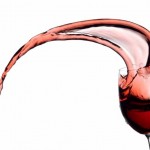
Creating a “Super Wine”: Resveratrol-Enriched Wine Does a Body Good?
| January 16, 2012

Source: http://www.earthtimes.org/newsimage/red-wine-ingredient-resveratrol-boost-metabolism-men_211.jpg
“Functional foods” or “superfoods” are growing increasingly popular among consumers looking for a healthier alternative to their current diet and toward dietary options that provide an extra health benefit than it would otherwise. In general, this desire for healthier food options has shown that people are more willing to purchase functional foods than the comparable food items that have not be enriched in any way. In regards to wine, studies have found that consumers are willing to pay more for resveratrol-enriched red wines than red wines not enriched with the compound.
Resveratrol, a natural polyphenolic compound found in many species, has been shown to protect against a wide variety of ailments, including diabetes, colon and breast cancers, cardiovascular disease, and neurological disorders. Found in the skins of grapes, it functions in the plant to act as an antioxidant and antibiotic, particularly when in a stressful environment such as when under attack from various plant pathogens. In recent years, the idea of creating a “functional wine” that is fortified/enriched with resveratrol, has become increasing enticing for those more health-conscious individuals.
There are many different methods by which resveratrol levels can be increased or decreased in wine, which includes from the selection of a particular grape variety that is naturally high in resveratrol to performing various winemaking techniques to alter the levels in the finished wine. By increasing resveratrol levels in wine, studies have shown that the levels of other phenolic compounds increase as well, which may result in the potential of higher bitterness in the wines, and thus lower consumer acceptance of the finished wine.
Currently scientists are able to create a wine rich in resveratrol, however, very little is known about the resveratrol concentration and stability over time and aging. One study, which was recently published in late 2011, measured changes in resveratrol levels in wine over time, while simultaneously measuring sensory characteristic (aroma/flavor) and changes therein. This is reported to be the first study of its’ kind to follow the chemistry and sensory characteristics of resveratrol-enriched wines over time.
The results of the study show that resveratrol appears to be stable for at least 58 weeks, which was the length of time allotted for this study. The results also provide evidence to support the hypothesis that enrichment of wine with resveratrol may provide increased antioxidant protection for wines over some period of aging time. Based on these results, it can be implied that resveratrol-enriched wines stored up to approximately one year may provide greater health benefits to consumers than wines not enriched in the powerful antioxidant.
Enrichment of resveratrol in Cabernet Sauvignon wines did not appear to alter the aroma/flavor of the wines in this study. This could be a varietal effect, or it could be due to the oak chip treatment during fermentation. It is possible that the oak treatment may have masked any potential sources of bitterness, and the fact that this particular varietal is already associated with a higher level of bitterness compared to a white wine may have made any differences more subtle and difficult to distinguish. Higher bitterness was detected in Riesling wines treated with resveratrol in this study, which may have been more noticeable due to the fact that Riesling wines have a naturally low level of bitterness to begin with and any changes would be much more noticeable than they were in Cabernet Sauvignon.
Overall, the results of this study suggest that for some wine varietals, such as Cabernet Sauvignon, it appears that resveratrol enrichment does not have a negative influence on the aroma/flavor of the wine. For other wine varietals, such as Riesling, the influence on the aroma/flavor may be less desirable for consumers.
The results presented in this study show promise that a wine enriched in resveratrol may not only be good for you, but may also have no negative impacts on the aroma/flavor of the resulting wine (varietal and vinification technique-dependent).
For more on this study, please click here.
About The Author
Rebecca Yeamans
Becca Yeamans is the owner/writer of the science-based wine blog, The Academic Wino, as well as the Tasting Room Manager at a vineyard in central Virginia. With a Bachelor of Science in Biology and a Master of Science in Environmental Science, her solid background in science and research allows her to approach wine blogging with a unique style that is both informative to those in the industry, and entertaining for those simply wishing to learn.

